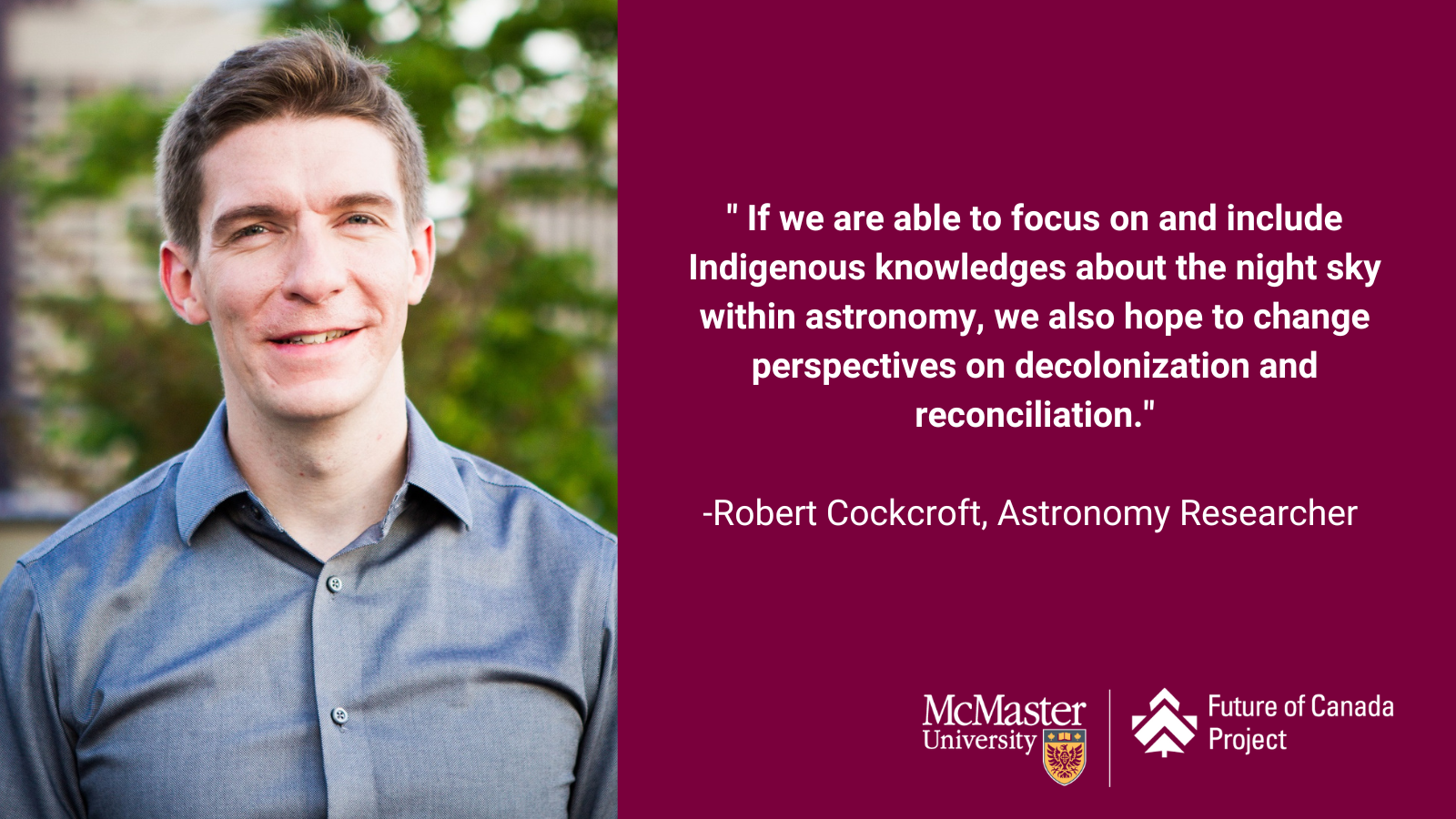Reconciliation through community and curriculum-building in astronomy

Through his Future of Canada Project—Reconciliation through community and curriculum-building in astronomy—Robert Cockcroft wants to deepen collaborations with Indigenous groups and help bring Indigenous astronomy to more students and youth.
We asked him a few questions about his project so we could better understand how increasing knowledge around Indigenous astronomy can further the process of reconciliation.
How has colonization impacted the way Indigenous astronomy knowledge is viewed?
Colonization has greatly reduced the extent to which Indigenous astronomy knowledge is presently known and shared. Much sky lore has become stolen or fragmented, and the connections between stories, night sky observations, and their relevance is not as obvious as it once was.
A detrimental spiral has ensued with many Western-trained scientists being skeptical even of the existence of Indigenous astronomy and Indigenous communities being reluctant to share sky lore out of fear of being misunderstood, disrespected and dismissed.
We plan to further reconciliation through astronomy by building on existing collaborative efforts to disseminate Indigenous astronomical stories.
What initiatives will this project introduce to increase knowledge around Indigenous astronomy?
There are three main initiatives that this project will deliver on. Firstly, we are creating an Indigenous astronomy undergraduate course, Two-Eyed Seeing and Astronomy, that will bring Indigenous and non-Indigenous students together from different faculties across campus.
The project will also expand the Indigenous astronomy outreach program using McMaster’s planetariums, allowing us to introduce this subject matter to more children and youth.
And finally, we will host a two-day Indigenous astronomy workshop that will celebrate Indigenous astronomy, bringing education experts and community members together while also contributing to Indigenous language preservation projects.
Tell me about how The Celestial Bear: The Six Nations’ Night Sky planetarium show influenced this project?
Our work with Indigenous collaborators started this past summer with the production of The Celestial Bear: The Six Nations’ Night Sky –a planetarium show that explored Indigenous cosmologies and astronomy. Seeing this show become the most-requested show in the McCallion Planetarium’s repertoire has driven home that this work is both important and timely.
Indigenous Elders’ feedback after seeing the Celestial Bear show included feeling validated because Indigenous knowledge was portrayed in a Western/Eurocentric academic facility—not that Indigenous knowledge becomes valid just because it is featured in an academic space, but they felt it was meaningful to have this kind of knowledge included in a McMaster setting. Elders were also struck by the broad audiences the show attracted.
Who will you be collaborating with on this project?
We are collaborating with various Indigenous scholars on this project. It is critical to work with others from different Nations to help avoid the pan-Indigenization of Indigenous Peoples – a concept which people may have heard of before but actually seeing this through a concrete example of astronomy really helps.
How will this project have an impact beyond astronomy?
Astronomy is one of the most accessible disciplines to non-experts in the sciences. Students and audience members often comment on their awe for the universe and the change of one’s perspective that it can bring about. If we are able to focus on and/or include Indigenous knowledges about the night sky within astronomy, we also hope to change perspectives on decolonization and reconciliation.
Watch this space for to learn more about other 2022-23 Future of Canada Projects that are currently underway.
Future of Canada Project Profile

